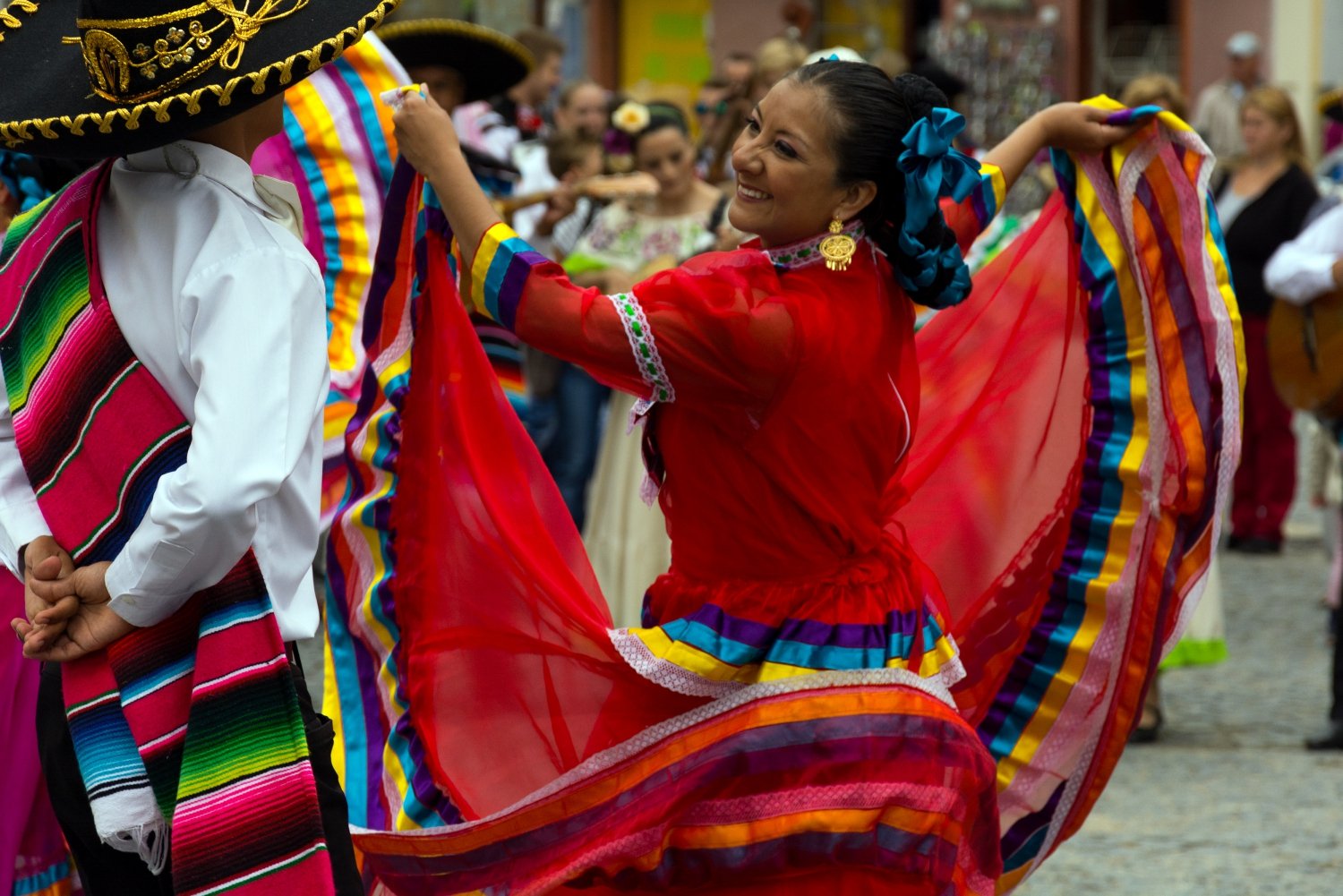Mexico: Fiesta, Mexico celebrates all year round!
Mexican fiestas - full of exotic rituals, costumes, masks, fireworks, songs and dances - are unique events
🌍 We are part of the My Guide Network
There are more than 5,000 fiestas in the Mexican calendar, which means an average of 14 celebrations a day. Apart from national holidays, every town, village and barrio (settlement) has its own fiesta, often in honour of the area's patron saint, so tourists are very likely to join in the fun.
Fiestas are an important part of the social life of the country. Some traditional celebrations have their origins in pre-Columbian nature-worship rituals, others came from Europe with Christianity and have distinctly Spanish elements, but most fiestas are a mixture of both influences, as is the country's community.
Celebrations vary from region to region - each celebration is completely different, but the regular highlights include music, dancing, parades and fireworks displays. On religious festivals, there are processions and collective novenas (prayers).
Mexican fireworks are breathtaking, and the bigger and richer the city, the more spectacular the show. For special occasions, fireworks specialists prepare castillos (castles) and toritos (bulls); the former are huge wicker towers reaching up to 20 metres, on which hundreds of fireworks are attached. The effect is unique! Especially popular in Puebla, toritos - wicker constructions in the shape of a bull - are attached to the dancer's shoulders.
The fun is concentrated in city centres, churches and main squares, usually accompanied by a market where you can buy handicrafts, trinkets, souvenirs and of course antojitos (snacks) - the favourite food of most Mexicans, consisting of many different delicacies - from beautifully decorated, peeled and cut fruit, served with lime juice, salt or chili, to the ubiquitous tacos, tamales and quesadillas.
Festivities are generally accompanied by a lottery, Mexico's version of bingo, with traditional figures of the devil, moon, soldier, senorita, drunkard, bachelor and death. Bullfighting, horse racing and cockfighting are also popular in most regions. In many cities, such as Huamantla (Tlaxcala) and Tlacotalpan (Veracruz), bull races are held, as in Pamplona, Spain. In Huamantla, during La Noche que Nadie Duerme (literally: the night in which no one sleeps) the bulls run 12 km through streets decorated with flowers to celebrate the feast of the Assumption (15 August).
Fiestas are an important part of the social life of the country. Some traditional celebrations have their origins in pre-Columbian nature-worship rituals, others came from Europe with Christianity and have distinctly Spanish elements, but most fiestas are a mixture of both influences, as is the country's community.
Celebrations vary from region to region - each celebration is completely different, but the regular highlights include music, dancing, parades and fireworks displays. On religious festivals, there are processions and collective novenas (prayers).
Mexican fireworks are breathtaking, and the bigger and richer the city, the more spectacular the show. For special occasions, fireworks specialists prepare castillos (castles) and toritos (bulls); the former are huge wicker towers reaching up to 20 metres, on which hundreds of fireworks are attached. The effect is unique! Especially popular in Puebla, toritos - wicker constructions in the shape of a bull - are attached to the dancer's shoulders.
The fun is concentrated in city centres, churches and main squares, usually accompanied by a market where you can buy handicrafts, trinkets, souvenirs and of course antojitos (snacks) - the favourite food of most Mexicans, consisting of many different delicacies - from beautifully decorated, peeled and cut fruit, served with lime juice, salt or chili, to the ubiquitous tacos, tamales and quesadillas.
Festivities are generally accompanied by a lottery, Mexico's version of bingo, with traditional figures of the devil, moon, soldier, senorita, drunkard, bachelor and death. Bullfighting, horse racing and cockfighting are also popular in most regions. In many cities, such as Huamantla (Tlaxcala) and Tlacotalpan (Veracruz), bull races are held, as in Pamplona, Spain. In Huamantla, during La Noche que Nadie Duerme (literally: the night in which no one sleeps) the bulls run 12 km through streets decorated with flowers to celebrate the feast of the Assumption (15 August).


